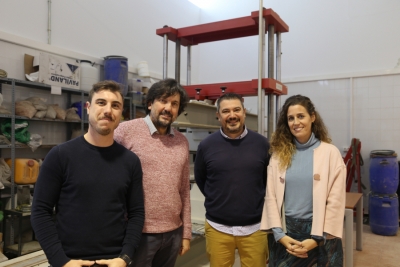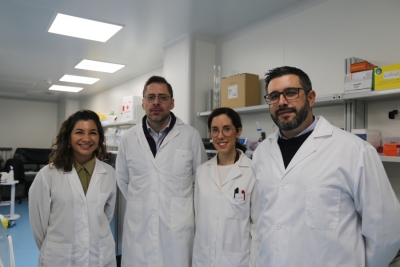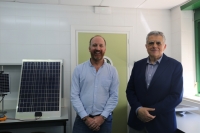The formula to reduce the carbon footprints of roads: waste, nanomaterials and less lime in the bases
Escrito por UCC+iA team at the University of Cordoba has designed a technique to stabilize soils in road bases using industrial waste and nanomaterials, reducing the use of lime by 66%, cutting the carbon footprint of the road in half, and improving its properties
A new method predicts the shelf life of strawberries in real time
Escrito por UCC+iBased on non-invasive technology, a research group at the University of Cordoba has created a tool to guarantee optimal strawberry quality and minimize food waste
Avocado Pruning Residues Used to Produce More Sustainable Food Packaging
Escrito por UCC+iA new study manages to produce a prototype of a more durable material that increases the biodegradability of food packaging, partially replacing its bioplastic with cellulose fibers extracted from the branches and leaves of the avocado tree
A model estimates the cultivable space at photovoltaic plants, to combine agricultural and photovoltaic production
Escrito por UCC+iA team at the University of Cordoba has developed a methodology that defines the cultivable space between two-axis photovoltaic modules, with the aim of promoting the conversion of existing plants over to agrivoltaic production
The technological challenge of non-stick pans: Teflon is still more effective than other coatings
Escrito por UCC+iA protocol designed by the University of Cordoba yields a simple and robust evaluation of the efficiency and durability of different commercial non-stick coatings used for food preparation
From Waste to Resource: A New and Sustainable Process Transforms Sewage Sludge into Activated Carbon
Escrito por UCC+iA joint project by two UCO research groups manages, in a simple and less resource-intensive way, to convert sewage sludge into activated carbon, a material with adsorbent properties used in a wide variety of industrial processes







